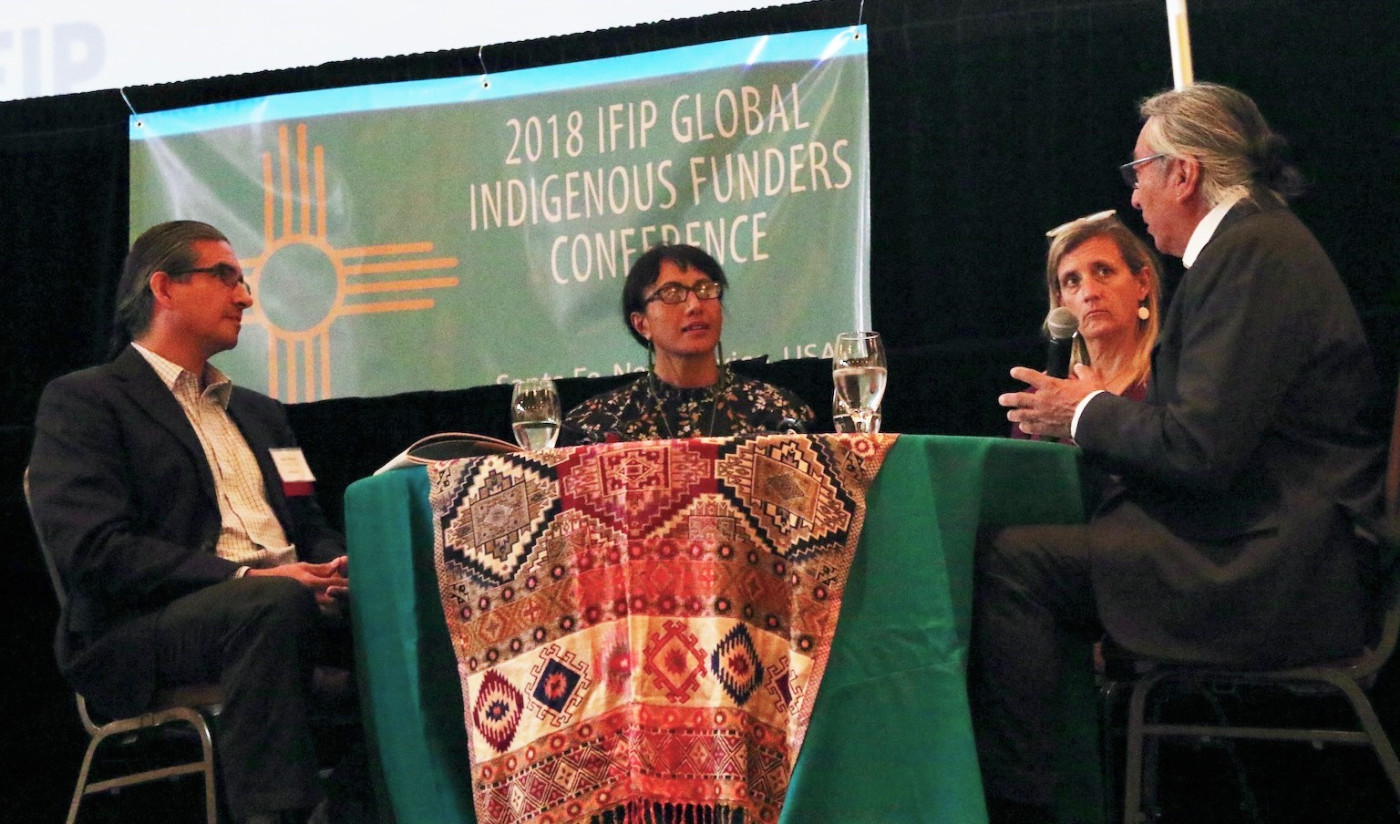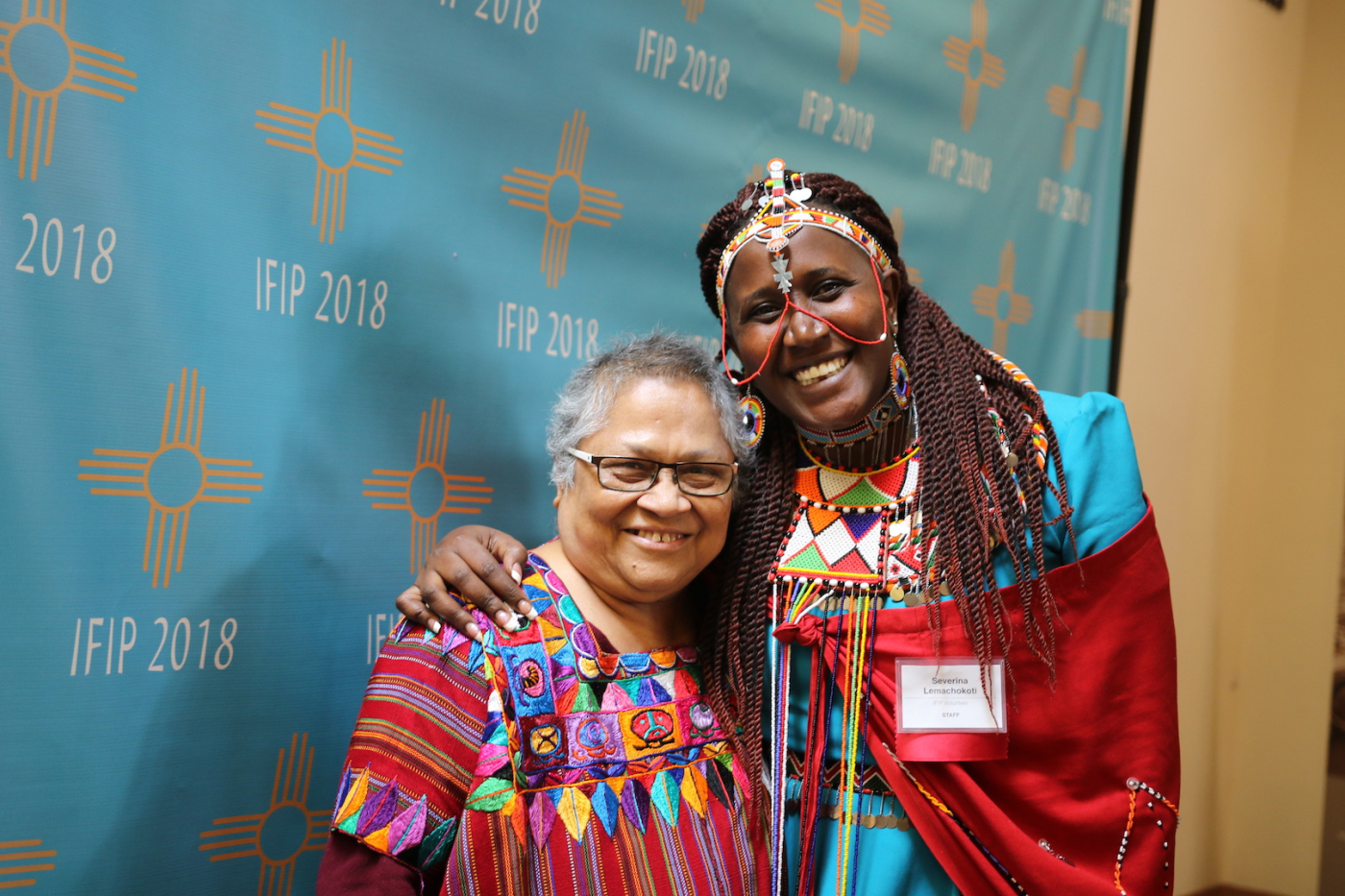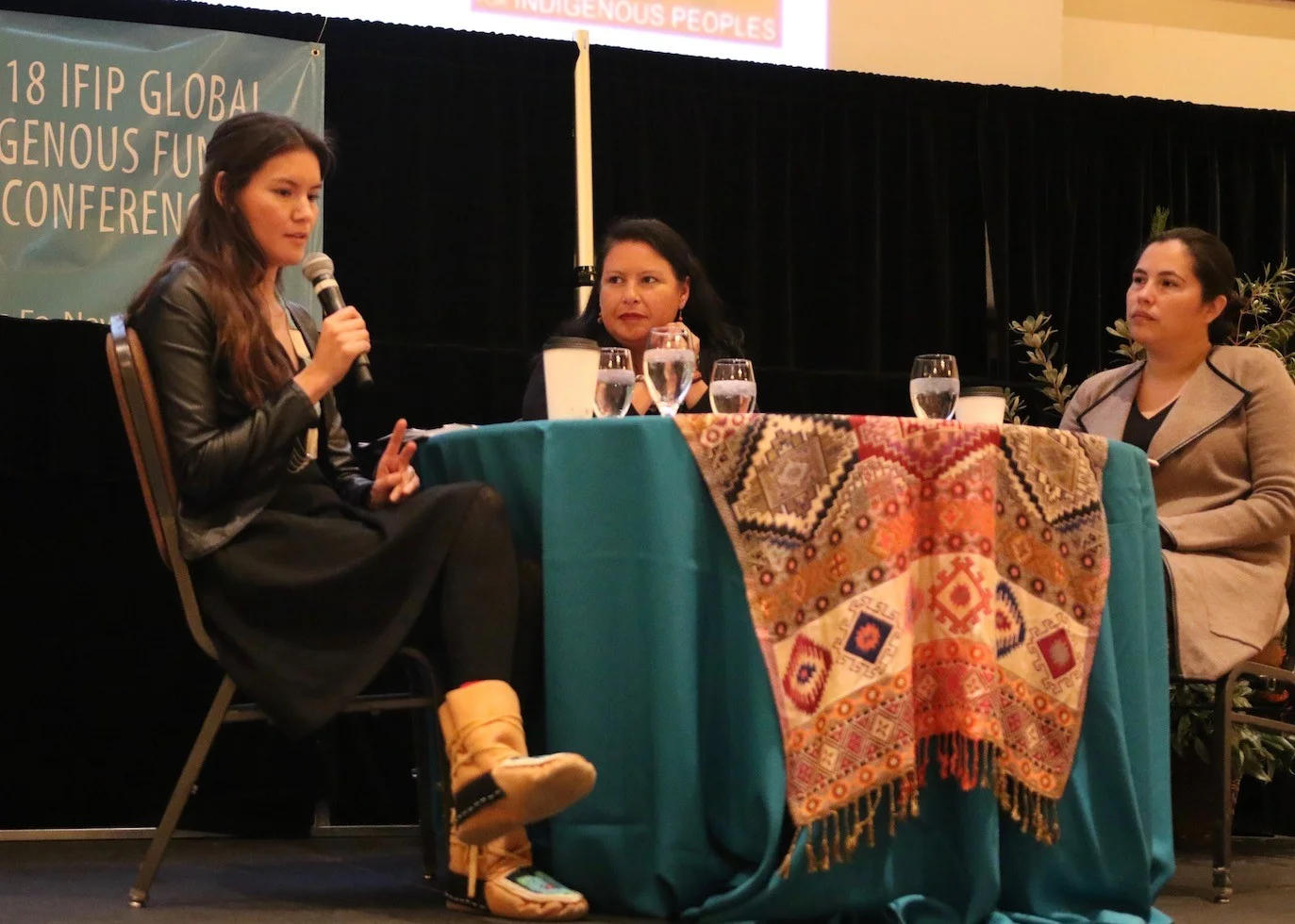Blog by Lourdes Inga

According to the United Nations there are an estimated 370 million indigenous people in the world, living across 90 countries. Indigenous communities are present in all geographic regions and represent 5,000 different cultures. There is a growing understanding by the global community that indigenous lands and waters represent 80 percent of the world’s biodiversity, that Indigenous Peoples are effective stewards of these areas, and that these ecologically intact areas of the Earth are a vital strategy for tackling climate change. Indigenous women play a vital role in the transmission of traditional knowledge, cultural practices and are often leading the protection of the world’s biodiversity and environment. Adopted in September 2007, after thirty years of advocacy by Indigenous Peoples, the UN Declaration on the Rights of Indigenous Peoples marked a milestone in the struggle for recognition of Indigenous Peoples’ rights. However, as a result of discrimination and failure to recognize the identity and rights of Indigenous Peoples, there are significant gaps in the recognition of Indigenous rights and the realities experienced by Indigenous communities on the ground.
International Funders for Indigenous Peoples (IFIP), the only global donor affinity group focused on Indigenous Peoples worldwide, plays a critical role in convening, educating, advocating, and expanding collaborative action among funders and Indigenous Peoples to advance issues of mutual importance. In October 2018, IFIP convened our global Indigenous funders conference in Santa Fe, New Mexico, to dialogue with funders to support indigenous-led solutions for long-term holistic change. At the outset, our conference planning committee was very clear that IFIP’s global conference needed to acknowledge the growing interest of philanthropy to partner with Indigenous Peoples to address the persistent gap in philanthropy on Indigenous funding across a broad range of issues and across geographies. Hence the conference theme needed to not only make a statement but also signal a call for change in philanthropy and the wider funder field. “Bolstering Indigenous Philanthropy” became a natural choice to support this vision for the conference and IFIP’s new strategic direction of expanding the sphere of influence for greater and more thoughtful partnerships with Indigenous Peoples.

Funding to Indigenous Peoples has traditionally received the attention of environmental funders. For example, a point of common interest is climate change and environmental protection. Increasingly more funders realize that Indigenous Peoples occupy 20 percent of the earth’s territory, which represents the largest portion of the Earth’s biodiversity and that without the support of Indigenous Peoples’ rights the world’s forests, oceans and biodiversity will not thrive. Simultaneously the global community is beginning to acknowledge the important role of Indigenous Peoples in protecting Earth’s natural resources. Likewise, women’s funds and foundations focused on the SDGs are starting to turn their attention to Indigenous women and Indigenous communities realizing that there can’t be a full realization of CEDAW or the 2030 Agenda without the inclusion of Indigenous Peoples or addressing the ongoing violations and criminalization experienced by Indigenous human rights defenders or the full realization of Indigenous women’s rights.
What we know is that evidence shows that the funding community is not equitably resourcing Indigenous Peoples across issues like climate change, environment, women’s rights, education, health, and economic development. According to the Foundation Center’s report The State of Global Giving by U.S. Foundations, between 2011-2015 funding to Indigenous Peoples represented only 1.2% of the total global giving from top U.S. foundations. “Bolstering Indigenous Philanthropy” requires a real commitment from the global philanthropy community to address the staggering funding gaps to resource Indigenous Peoples.

One of the many highlights of IFIP’s Global Conference came in the form of the First Global Gathering of Indigenous-Led Funds. This historic moment signaled a new period in philanthropy with Indigenous-led funds from around the world calling to decolonize philanthropy to address the historically glaring funding gaps and support the solutions, ideas, and innovations of Indigenous Peoples. The conference plenaries shined the light on how philanthropy can amplify Indigenous funding in a mindful and respectful way. We heard from philanthropy leaders from W. K. Kellogg Foundation, Oak Foundation, and J R McKenzie Trust on why their foundations are beginning to recognize the importance of recruiting Indigenous Peoples as program staff and board members, signaling that changes and shifts in philanthropy are possible. The conference concluded with a united message from International Funders for Indigenous Peoples, The Circle on Philanthropy and Aboriginal Peoples in Canada and Arctic Funders Collaborative with a call for equity in philanthropic giving to indigenous organizations.

IFIP’s ‘Bolstering Indigenous Philanthropy’ theme will continue beyond our global conference. As a funder network, IFIP provides the tools to funders who want to learn how to start and grow effective partnerships with Indigenous Peoples. IFIP Learning Institute for instance is the only funder institute designed to build the capacity of funders who seek to learn and deepen their partnerships with Indigenous Peoples. In addition, IFIP’s working groups focused on Indigenous women and Indigenous territories facilitates donor education, collaboration to foster change in philanthropy. We invite the engagement of the WINGS community by working with us and sharing with others in the philanthropic community about IFIP’s Learning Institute and key working groups. We know collectively, our wisdom and diverse perspectives will expand this conversation widely to achieve equity in the philanthropic community.
Source: Philanthropy In Focus
